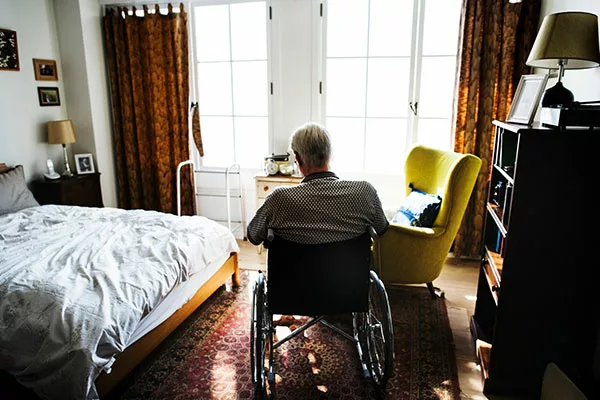11.15.2023
5 Signs of Elder Neglect You Might Be Missing

The elderly are among the most vulnerable individuals. They deserve respect, dignity, and proper care in their twilight years. Often, seniors are unable to speak up or defend themselves due to cognitive decline, fear, or physical frailty. This makes it even more essential for families and communities to be their voice and shield.
Elder neglect and abuse is an alarming and unfortunate issue that often goes unnoticed. With an aging population, many families place their elderly loved ones in nursing homes, trusting these institutions to provide the necessary housing, medical care, and personal care. Yet, there are instances where neglect and abuse arise. Recognizing the signs of abuse and taking swift action is essential to protecting your loved ones.
As the phrase goes, “forewarned is forearmed.” By understanding the common signs of elder neglect and abuse, you can be proactive in ensuring the well-being of your family members.
Elder Neglect Signs You Might Be Missing
Identifying neglect and abuse in a nursing home setting is challenging, and knowing the signs can help. Some of the most common include:
- Unexplained Injuries or Bruises: One of the most easily identifiable indicators of elder abuse is the presence of unexplained injuries or bruises. It may be a sign of physical abuse if your loved one has frequent injuries without plausible explanations. Be vigilant in asking how these injuries occurred and monitor any patterns or sudden changes in frequency or nature. If they have dementia or other cognitive issues, it is often difficult for them to remember and communicate what took place.
- Sudden Changes in Behavior or Mood: A significant and sudden change in your loved one’s behavior, mood, or demeanor can indicate emotional or psychological abuse. If they appear fearful, depressed, or withdrawn, especially around specific staff members, it may be a cause for concern.
- Neglected Personal Hygiene: One of the fundamental aspects of caregiving is ensuring the individual’s personal hygiene. Elder neglect is often apparent in unwashed clothes, bad odors, dirty hair, soiled clothes, and untreated bedsores. If you notice a deterioration in your loved one’s cleanliness or personal care, it might indicate neglect by the caregiving staff.
- Financial Anomalies: Financial abuse is another prevalent form of elder abuse in nursing homes. Watch for unexpected changes in financial statements, missing possessions, or unauthorized transactions. Your loved one might be getting exploited financially without even realizing it.
- Isolation from Others: If you find your loved one isolated when you visit or call, whether in their room or away from other residents, it can be a sign of abuse. Staff might isolate residents to prevent them from communicating about the abuse they’re experiencing. Isolation could also indicate increased fear from the trauma of abuse.
What to Do When You Suspect Elder Abuse
If you notice these signs of abuse or any other suspicious behaviors, it is crucial to act immediately. Your loved one’s safety and well-being could be at stake. Here’s what you should do:
- Document Everything: Keep a detailed record of all incidents, conversations, and observations. Photographs of physical injuries or other evidence can be invaluable for legal action.
- Speak to Management: Address your concerns with the nursing home’s administration. They should be willing to investigate and address any issues promptly. Any hesitancy, backpedaling, assigning blame to the elderly individual, or deferring of your concerns are huge red flags.
- Hire an Attorney: If you believe your loved one is a victim of elder abuse or neglect, consulting with an attorney specializing in this area can be beneficial. An attorney can guide you on the steps to take, ensuring you approach the situation legally and effectively. They can help you secure evidence, potentially pursue a legal case against the nursing home, can represent you and your loved one in court.
- Report Elder Abuse: Every state has an elder abuse reporting process. Usually, this involves contacting the local Department of Social Services or a similar agency. Your attorney can also guide you through this process.
Protect Your Loved Ones
Elder abuse in nursing homes is a grave concern requiring vigilance and prompt action. By being aware of the signs of abuse and knowing how to address them, you can ensure the safety and dignity of your elderly loved ones. Remember, elder abuse doesn’t just manifest as physical harm. It can be emotional, financial, or even neglectful. Always prioritize the well-being of your loved one, and never hesitate to seek legal assistance when in doubt. Additionally, an experienced, knowledgeable, and compassionate legal team can help you through the emotional challenge of taking legal action against a nursing home when your loved one is the victim of abuse while in their care. Contact Carr Legal Group today for a free consultation.
Back
